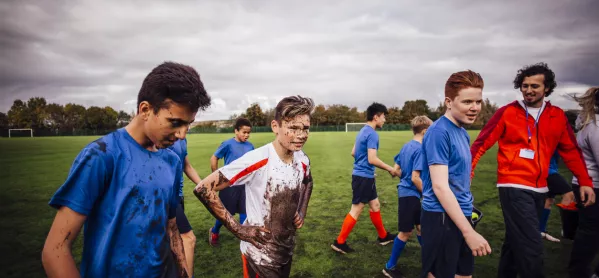The proportion of 15-year-old girls who say they feel pressured by schoolwork “a lot” has risen from 26 per cent in 2002 to 71 per cent in 2018, according to an official survey.
The Scottish Schools Adolescent Lifestyle and Substance Use Survey (SALSUS) - which has been running since 2006 and is commissioned by the Scottish government - found 15-year-old boys reported being less anxious about their studies, and enjoying school more.
Background: Most Scottish teenagers feel the burden of school work
News: Health Behaviour in School-Aged Children: key findings
Wellbeing: Pupil sleep problems ‘worsen as screen time increases’
Big read: Should we ban mobile phones in schools?
Teenage boys were more likely to say they liked school “a lot” or “a bit” than girls, with 68 per cent of 13-year-old boys reporting that they liked school, against 65 per cent of teenage girls. By age 15, the gender gap had grown, with 59 per cent of boys saying they liked school, against 50 per cent of girls.
I’ve been saying since the introduction of the Nationals/new Highers that I would absolutely not trade places with a teenager now. The pressure on them is ridiculous in terms of workload and expectation. In my experience, high att. girls are a particularly affected group
- Graeme (@thethommonator) July 1, 2020
Boys, however, have also become increasingly concerned about schoolwork over time but not to the same extent as girls - 16 per cent of 15-year-old boys reported feeling pressured by schoolwork “a lot” of the time in 2002, as compared with 43 per cent in 2018.
The survey - which is one of the main sources of mental health data among young people but also looks at substance use, including smoking, drinking and drug use - surveyed pupils in S2 and S4 between October 2018 and April last year. Ultimately a total of 12,558 S2 and 10,807 S4 pupils responded.
SALSUS also found that girls at the age of 15 had the lowest mental wellbeing scores - as they have done since 2010.
Average mental wellbeing scores fell across all groups from the previous time the survey was conducted in 2015, with the figure going from 48.4 to 46.9.
The fall was greatest among 13-year-old girls and 15-year-old boys.
Those living in deprived areas and those who were less likely to talk to their parents had lower levels of mental wellbeing.
There was a “marked increase” in pupils who thought it was OK to try drinking alcohol and a small increase in those who thought it was OK to try smoking.
Responding to the survey, mental health minister, Clare Haughey, said that research had shown social media use and disrupted sleep had a negative impact on the mental health of teenagers. She said the Scottish government had published advice on social media use for young people created by the Scottish Youth Parliament and the Children’s Parliament.
She also acknowledged that the lockdown, owing to the coronavirus pandemic, was likely to have an impact on young people’s mental health and wellbeing.
She said: “Supporting children and young people’s mental health and wellbeing has been even more important during the Covid-19 outbreak, with schools closing and restrictions on everyday life. Child and adolescent mental health services (Camhs) continue to support children and young people in need of specialist support, although there will be adjustments in how that is delivered to accommodate coronavirus restrictions.
“We’ve also provided £105,000 to support Young Scot to develop enhanced digital content and resources to provide them with information, advice and signposting to support their mental health and wellbeing during, and after, the current lockdown.”




